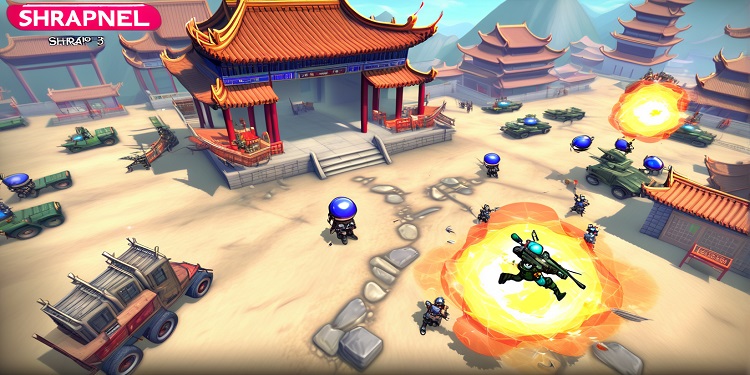China is set to welcome its first licensed Web3 game, SHRAPNEL, which will be built on the nation’s official RWA Trusted Copyright Chain. This development marks a significant milestone in the integration of blockchain technology within the Chinese gaming industry.
SHRAPNEL, an AAA Web3 first-person shooter, has been developed by a team with experience in major franchises such as Halo, Assassin’s Creed, and Star Wars. The game will collaborate with the Trusted Copyright Chain, a blockchain framework that enables government authorities to certify digital assets and intellectual property (IP) rights. This initiative aims to establish verifiable digital ownership for individuals within China.
Features and Compliance in the Chinese Market
According to an official statement, the game is scheduled for release within the year and will feature a specialized game launcher tailored to the Chinese market. In addition to this, a marketplace integrated with the Trusted Copyright Chain will be introduced, providing blockchain-based tools that facilitate the compliant tokenization of real-world assets (RWAs).
Players in China will have exclusive access to tokenized in-game cosmetic items based on Shrapnel’s intellectual property. The introduction of the RWA Copyright Chain signifies China’s intent to digitize real-world assets, with the tokenization of Shrapnel IP serving as the starting point for this transition.
By recording legal documentation of its gaming assets on-chain, SHRAPNEL seeks to collaborate with the Chinese government in establishing a transparent and equitable framework for owning and trading digital assets. This initiative is expected to enhance China’s blockchain gaming sector, unlocking new opportunities in its multi-billion-dollar gaming industry.
The partnership will also serve as a compliant channel for introducing high-quality international content into China’s regulated gaming landscape.
划时代的合作!弹片将成为中国第一个可以用人民币自由合法交易道具的游戏(上一个是20年前的梦幻西游)🔥
新闻中文版翻译:https://t.co/iuzTj5r1G8 https://t.co/164IVJK5bj pic.twitter.com/m7Bofk6i5T
— 大诚ian (@Ianwang666) April 1, 2025
Partnership with People’s Daily Digital Subsidiary
Beyond its association with the Trusted Copyright Chain, SHRAPNEL has formed an agreement with Lingjing People’s Game Labs, a digital subsidiary of People’s Daily, the official newspaper of the Chinese government. Established in 2024, Lingjing People’s Game Labs focuses on fostering a sustainable gaming industry by building platforms for cultural digital certification, digital asset transformation, and game monitoring.
Under this partnership, SHRAPNEL’s localized Web3 game will be distributed in a government-compliant manner. Additionally, Lingjing People’s Game Labs will oversee the minting, issuance, free trading, and localized operations of digital assets related to the game.
Industry Impact and Future Developments
Ken Rosman, CEO of Neon Machine, expressed that this achievement presents significant potential for both SHRAPNEL and the Web3 gaming industry in China. He emphasized that the partnership establishes a strong example of how decentralized technologies and national regulatory frameworks can work in tandem to drive global growth. Additionally, Rosman hinted at further developments, stating that this agreement represents just the beginning of broader initiatives.
A key event in this collaboration took place on March 8, when SHRAPNEL’s team and investors participated in the ‘Web3.0 Games and International Digital Copyright Cooperation’ seminar in Beijing. This event served as the platform for preliminary discussions with Lingjing Game Labs.
By March 28, an agreement had been formalized, outlining that Lingjing People’s Game Labs would assist SHRAPNEL in ensuring the compliant issuance of digital assets. The partnership also aims to facilitate the introduction of new game content, promote cultural integration, and explore sustainable development avenues for Web3 gaming.
The collaboration is expected to contribute innovative models for the digital transformation of the gaming industry, with initial outcomes projected for 2025.








